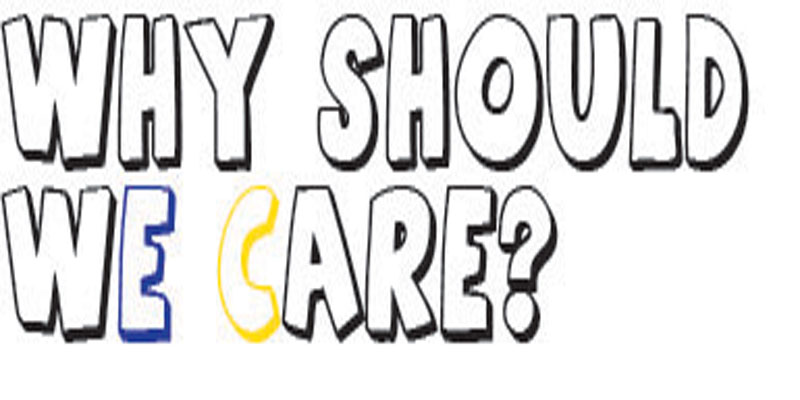Why should we care?
Should:
The latest viral blog post was getting attention for its misleading title, initially.
“Marriage Isn’t For You” seems like it will discourage people from the institution, but it ends up being somewhat of a love letter. Or what some would consider a love letter.
The author, Seth Adam Smith, tells of his experience so far in his short marriage. He said he’s finally taking to heart a message his dad tried to convey to him before his wedding: a marriage is about making the other person happy.
At first glance, this seems like a perfectly fine message. Don’t be selfish in a relationship. Other people’s feelings matter, too. But when thinking critically about Smith’s argument, it begins to feel squishy.
Is another person’s happiness really more important than your own? Is a marriage such a binding contract that we’re not allowed to be a little selfish here and there? Are we supposed to completely lose ourselves in a relationship to the point where we are someone’s other half, instead of our own person?
As with all controversy, a response soon followed Smith’s original post. An article published on cosmopolitan.com took a more logical approach. Yes, a partner should strive to make his or her partner happy. But in a healthy relationship, both people should make each other happy while still remaining individuals.
Smith’s message entirely falls apart for me when you really think about the implications of what it means to have two entirely unselfish people in a relationship. You’re essentially trading yourself for another person. Instead of focusing on yourself, you become responsible for someone else’s feelings.
Or you could have the other extreme: one person sacrificing his or her individuality for someone who doesn’t return the favor.
Wouldn’t it be better to have two self-sufficient people working together to make each other better people?
Shouldn’t:
Amid a slight controversy over Saturday Night Live’s lack of a black female cast member, last week the show took advantage of the fact that Kerry Washington was the host.
In the opening sketch, Washington was tasked with playing Michelle Obama, Oprah Winfrey and Beyonce as the show poked fun at itself.
The sketch ended with Al Sharpton appearing and accurately proclaiming that the scene really had taught us nothing.
Sharpton is right. The lack of a black female has only been obvious the last few weeks because it was pointed out.
Washington successfully played a range of characters, but SNL also didn’t hesitate to put Washington in roles that relied too heavily on racial stereotypes.
Diversity is a good thing. But if casting a black woman means she’ll have to play all the stereotypical black woman parts, is that really the kind of advancement we want to be making? Is it really advancement at all?
While the opening sketch may not have showed us anything new, the episode as a whole works as a case study for why the SNL cast is neither helped nor hindered by the inclusion of a woman of color.
What Washington brought was a great attitude and a sparkling personality. Her talent as an actress and her willingness to try anything is what made her a good host. The fact that she’s a black woman had nothing to do with her success.
The last time a black woman was part of the cast was Maya Rudolph in 2007. My guess is Rudolph wasn’t added as some kind of Affirmative Action push. She’s a talented comedian, regardless of her gender or skin color.
When SNL finds a new comedian to welcome to the cast and she just happens to be a woman of color, that will be great. For the time being, it doesn’t need to be a priority. We’ve come far enough that we don’t need to insist minorities prove themselves.






